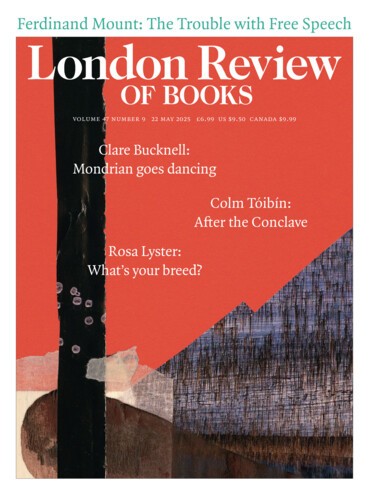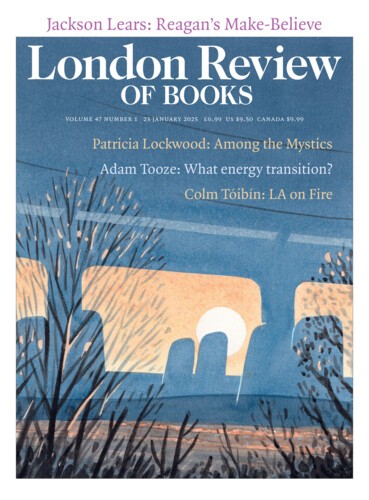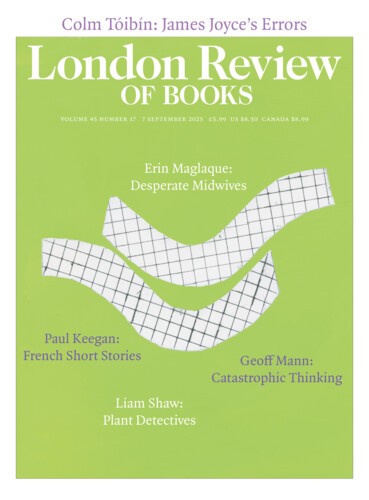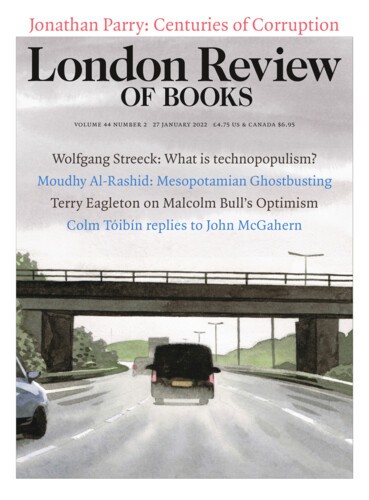The Pope and Pachamama
Colm Tóibín, 22 May 2025
Steve Bannon doesn’t like him. Before the conclave, he named Cardinal Robert Prevost as ‘one of the dark horses’ to become the next pope. ‘Unfortunately, he’s one of the most progressive,’ Bannon added. It is unlikely that Princess Gloria von Thurn und Taxis, who had objected to Pope Francis and wants a return to a more traditional Catholicism, has much...





